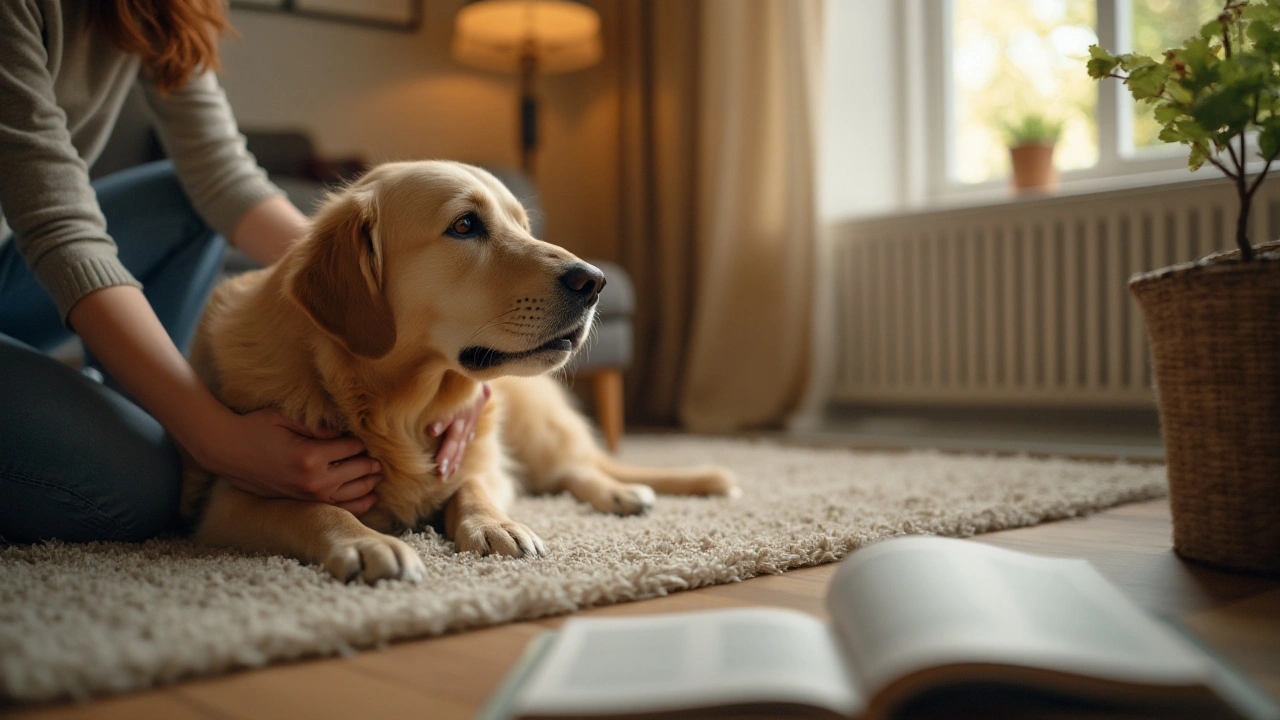Gastroenteritis in Pets – What You Need to Know
If your dog or cat suddenly starts vomiting or has runny poop, you might be dealing with gastroenteritis. It’s a fancy word for an upset stomach that can hit any pet. The good news is most cases are mild and get better with simple steps at home. The bad news is some infections turn serious fast, so knowing the signs and what to do matters.
Common Signs and When to Call the Vet
Typical symptoms include:
- Frequent vomiting or dry heaving
- Watery diarrhea, sometimes with blood
- Lethargy or hiding
- Loss of appetite
- Fever (you can feel a warm nose or ears)
If your pet shows any of these for more than 24 hours, has repeated vomiting, looks painful, or you notice dehydration (skin tenting, dry gums), call the vet right away. Young puppies and kittens need extra attention because they dehydrate quickly.
Simple Home Care Steps
When symptoms are mild, start with these steps:
- Hold off on food for 12‑24 hours. Let the stomach settle. Keep fresh water available, but offer it in small sips every hour.
- Reintroduce a bland diet. After the fasting period, give boiled chicken (no skin or bones) and plain white rice in tiny portions—about a tablespoon for a small dog or kitten, more for larger pets. Feed every 3‑4 hours.
- Watch hydration. If water isn’t staying down, try an electrolyte solution made for pets or a pinch of unflavored Pedialyte mixed with water.
- Limit treats and table scraps. Anything rich can reignite the irritation.
- Keep the environment clean. Wash food bowls, litter boxes, and any surfaces your pet contacts to avoid re‑infection.
If after 48 hours there’s no improvement, or if symptoms get worse, it’s time for a vet visit. The doctor may run stool tests, blood work, or imaging to find the cause—bacteria, viruses, parasites, or a dietary mistake.
Prevention is easier than treatment. Stick to a consistent diet, avoid sudden food changes, and keep your pet away from spoiled garbage or raw meat unless it’s a vetted diet. Regular deworming and flea control also cut down parasite risks that can cause gut upset.
Remember, most gastroenteritis cases resolve with rest, water, and a bland diet. Keep an eye on behavior, act fast if things look serious, and you’ll give your furry friend the best chance to bounce back quickly.
Gastroenteritis in Pets: Protect and Care for Your Furry Friends
Gastroenteritis is a common condition in pets characterized by inflammation of the gastrointestinal tract. This article explores its causes, symptoms, and treatment options while offering practical tips to prevent it. Read on to learn how to keep your furry companions healthy and happy.

